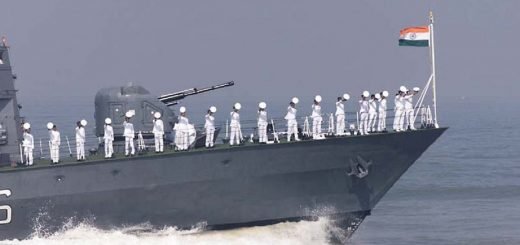A Brief: India’s assessment on Russia’s Counterterrorism Ops and its impact in Syria
If India provides its Air Force prowess in the Syrian conflict, the act will prove a statement—when your friend is in a fight, you enter the fray. The involvement of India in the Syrian conflict will not only benefit and strengthen its strategic partnership with Russia, the United States and Syria—who are already game players in this conflict but also gives India an opportunity to eliminate the extremist group—Islamic State or Daesh, in its own base outside India – Anurag Sharma*
India’s Diplomatic Interest in Syria
India has a number of interests and values which underpin its position on Syria. Opposition to foreign intervention and support for state sovereignty (regardless of regime type) are long-held principles that by default make India’s position favourable to the Assad government. These principles are underpinned by anti-colonialism, Third World solidarity, interest in preventing foreign intervention in Kashmir, and cultural values such as pluralism, non-violence (at the interstate level) and tolerance. India can justify not criticizing Russia’s involvement as this was at the invitation of the Assad regime. In a situation where rebel groups mark a victory, the local insurgent groups’ morale emerged too high to potentially causing further instability in the region. The instability in the region would also threaten seven million Indian migrants.
India’s Diplomacy over Russian Air Strikes in Syria
Russia began the air-striking with specific targets in Syria in September 2015. The primary motives behind such Military strikes are to prop up Syrian President Bashar al-Assad’s flagging regime that has been under siege by the transnational terror outfit Islamic State, Western-supported rebels in the region, a group affiliated with al-Qaeda, mainly al-Nusra front. Regarding India’s position on Russia’s Military involvement in Syria, India believes that the Military intervention is to halt the advances of the Islamic State. Though, there is no military solution to the Syrian crisis. The long-term solution shall be political.

The involvement of India in the Syrian conflict will not only benefit and strengthen its strategic partnership with Russia, the United States and Syria—who are already game players in this conflict but also gives India an opportunity to eliminate the extremist group—Islamic State or Daesh, in its own base outside India | Image: Russia Beyond
However, regarding the security crises in Syria, India has expressed its viewpoint in 2013 when India’s Ministry of External Affairs had responded to a question related to ‘situation in Syria’, an unnamed official spokesperson has replied that “India has consistently called upon all sides to abjure violence so that conditions can be created for an inclusive political dialogue leading to a comprehensive political solution, taking into account the legitimate aspirations of the Syrian people. There can be no military solution to this conflict. We continue to support the proposed ‘International Conference on Syria’ (Geneva-II), being the best prospect for a political solution, for bringing the Syrian Government and the opposition to the negotiating table.”
Shall India Join Russian Air Strikes in Syria?
Instead of being a silent spectator, there are some possibilities that India may involve its skilled military power to aid Russia in air strikes in Syria, to eliminate Islamic State’s presence in the region. Apart from Russia, no Syrian neighbour is conducting the air strikes on Islamic State and other affiliated terror groups active in Syria. If India provides its Air Force prowess in the Syrian conflict, the act will prove a statement—when your friend is in a fight, you enter the fray. The involvement of India in the Syrian conflict will not only benefit and strengthen its strategic partnership with Russia, the United States and Syria—who are already game players in this conflict but also gives India an opportunity to eliminate the extremist group—Islamic State or Daesh, in its own base outside India. There are several media reporting of IS threat to India which because of the few Indian Muslims joining the cadre of the terror outfit. Therefore, India has every right to contain the evil [IS] before it reaches out to become a serious threat to the sovereignty of India.
Conclusion
India’s support for Syria obviously cannot compare with Syria’s other allies such as Russia and Iran. India neither needs to nor is able to intervene in Syria in the way that those two powers [Russian and Iran] are involved to contain the Syrian conflict. Instead, it does make sense for India to sit back and let the Russians and the Iranians do the “heavy lifting” in Syria whilst quietly reaping the benefits and giving diplomatic support. Moreover, India’s has lost its two allies in Iraq and Libya—Saddam Hussein and Muammar Gaddafi who supported India’s policy on the Kashmir issue. Therefore, India would not risk its diplomatic ties with Syria which is an important part of Indian diplomacy in Middle-East region.

*Anurag Sharma is a Research Assistant at the Institute for Conflict Management, a think-tank organisation based in Delhi, India. He is also a Junior Research Affiliate with the Canadian Network for Research on Terrorism, Security and Society (TSAS). His main research interests are: terrorism and the Internet, Countering Violent Extremism/Online (CVE), Radicalisation and Foreign (Terrorist) Fighters.
The views and opinions expressed in this article are those of the authors and do not necessarily reflect the views of The Kootneeti Team.




















